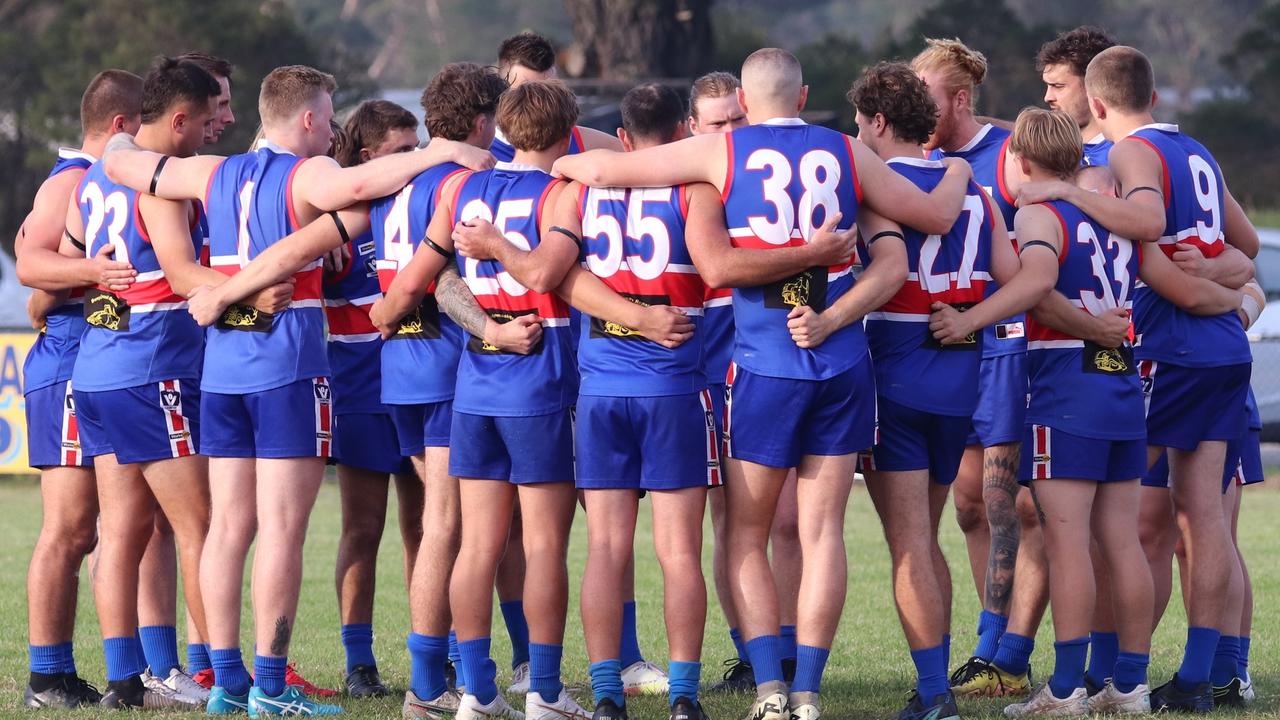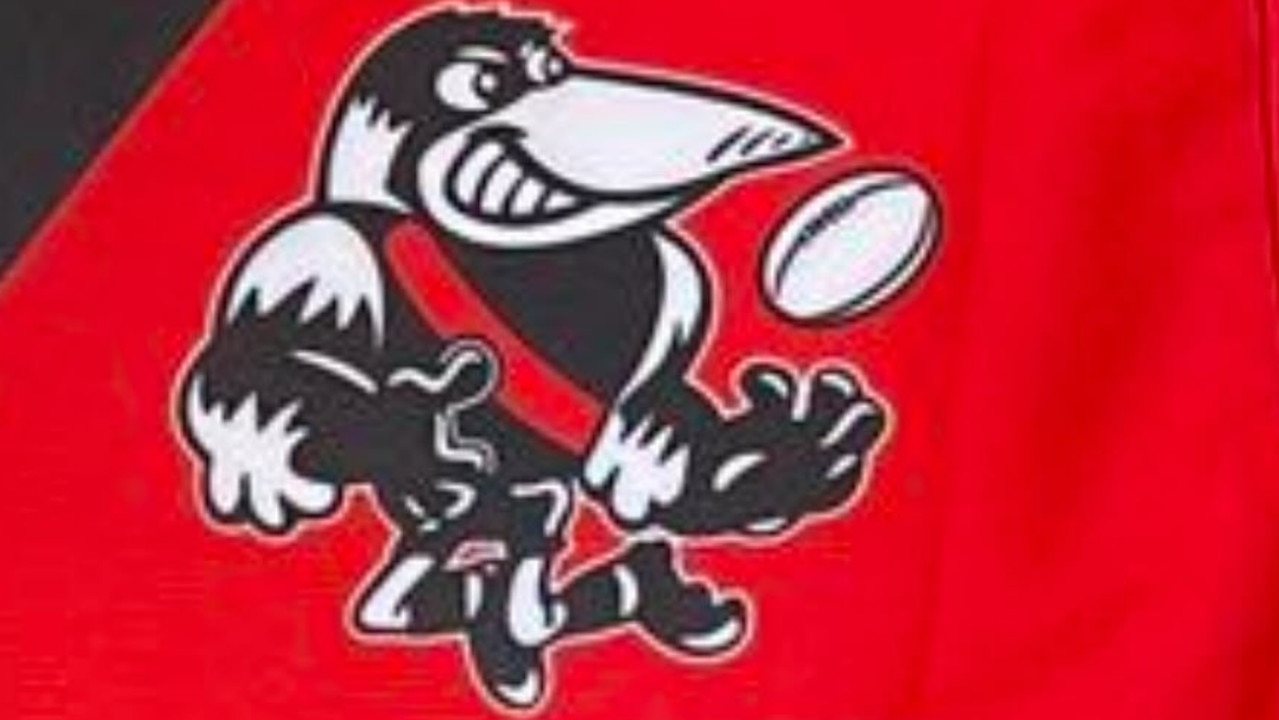North Ballarat to host reunion for 1963, 1973, 1983 and 2013 premierships
Is this country footy’s most dominant club over the last several decades? North Ballarat will celebrate four of its 17 premierships this weekend as we relive the success.

Country Footy
Don't miss out on the headlines from Country Footy. Followed categories will be added to My News.
What’s better than reminiscing about one premiership? Celebrating four.
This weekend, North Ballarat will host reunions to commemorate the 1963, 1973, 1983 and 2013 Ballarat league triumphs.
The Roosters have been the most dominant team in the Ballarat league for the past 71 years, winning 17 premierships.
They are second on the all time premierships list, as a single entity, one behind foundation club Ballarat.
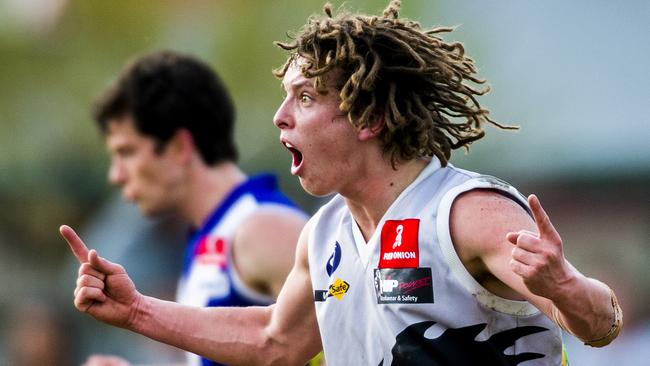
The 1963 success was the club’s first senior premiership while their 2013 triumph was the first after re-entering the local competition after moving to the VFL in 1996.
“To be honest it is a chance to bring our whole club together annually and acknowledge and celebrate the premierships,” event organiser and former North Ballarat player Travis Polkinghorne said.
“Thankfully we’ve had a lot of success, so it’s a chance to recognise that.”
Polkinghorne said each team was special as it contained a plethora of North Ballarat juniors.
“On average we had a minimum of a dozen juniors coming through (with each win),” he said.
“It makes it even more special and meaningful for people because they have grown up within the club.”
North Ballarat will not only celebrate four senior premierships but will also commemorate the 1993 reserves premiership and the under-18 premierships in 1983 and 2013.
We take a look down memory lane of each senior premiership and why it is edged into North Ballarat folklore.
1963 – North Ballarat 8.10 (58) def, Ballarat 8.8 (56)
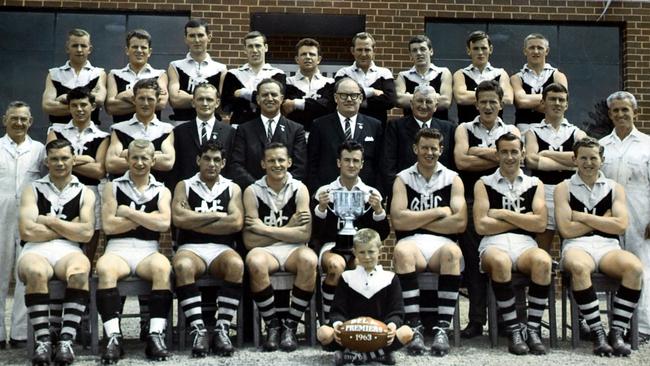
It might be 60 years since Doug Richards played in the 1963 Ballarat premiership, but he remembers it like it happened yesterday.
In 1948 his father, also Doug, was instrumental in starting the process of building Mars Stadium to what it is today.
“When I played as a kid there it was a tin shed,” Richards said.
“They went out and found some army sheds and brought army sheds to the ground.
“(He) pulled the shed down and put the army sheds up with an entrance in the middle.”
Fifteen years later the club had its first senior premiership with Richards playing a role, even though his season was filled with tragedy.
After signing for Geelong in the VFL as an 18-year-old he was forced to come back to Ballarat after the death of his father.
“It was a pretty big year for me,” Richards said.
“I got picked up by Geelong and my father passed away earlier.
“I did get selected to play (for the Cats) but mum couldn’t cope with the business (and I came back).”
Geelong’s pain was North Ballarat’s gain as Richards played his role in a famous two-point win over the Swans.
“It was a great day, nice fine day,” he said.
“We belted Ballarat in the second semi and it was a good game (in the grand final). I remember having quite a few kicks and was one of the youngest in the team.
“We led all day and they came at us a few time.
“But we had a good backline with Peter Downes, myself, Greg Goldsmith and a few others.
“I remember the last couple of minutes the ball came down and I was lucky enough to mark it, run around a couple of players and kick it out on the full, which you could do in those days.
“And it was only a minute or so later the siren sounded.”
The team was littered with talent including former Fitzroy midfielder Ian Aston as the captain-coach alongside Tony Lockett’s father, Howard.
Jim Walton (Richmond) and Peter Downes (South Melbourne), who played VFL, were also involved.
There was also Kevin Polkinghorne, who was the player of the match.
Polkinghorne recently died and Richards said he would be missed at the reunion.
1973 – North Ballarat 13.5 (83) def. Beaufort 7.8 (50)
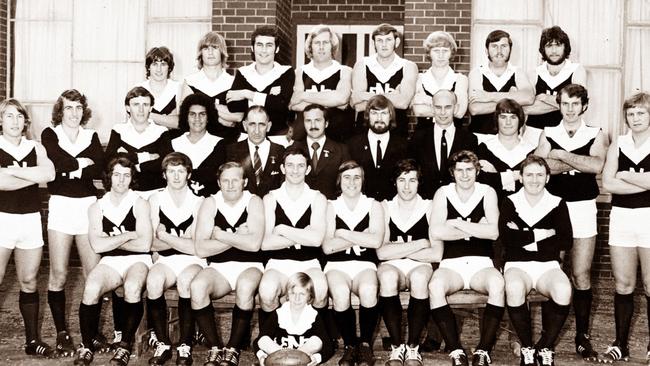
In the first 20 seconds of the 1973 decider, North Ballarat knew it would be their day.
Well midfielder Owen Thomas thought it when the Roosters started perfectly against Beaufort.
“Our mobile ruck rover got the ball at the first centre bounce, ran through the centre, took a bounce and got it right through the middle,” Thomas said.
“We got a goal in the first 20 seconds. I didn’t think we were going to get beat.”
Thomas’ thoughts would prove to be true as North Ballarat took control early and were never threatened by the Crows.
“It was a wonderful day,” he said.
“I think we always had it under control. We were nearly six goals up at half time and seven goals up at three quarter time and we won by six goals.”
Thomas recalled the 1973 redemption after he and the Roosters went down a year earlier against Maryborough on the competition’s biggest day.
“We played off in the final the year before and got beat and we were really good things to win that,” Thomas said.
“We were very determined to win the one in 1973.”
Thomas was one of six players who not only won in 1973 but also was successful in 1970.
He was named as one of the best during the game but conceded others were better.
“I was the rover,” Thomas said.
“I shared that position with two guys, Greg Mitchell and John Vallance.
“They were very good players and I was lucky to be playing in the trio.
“I got a few kicks but I think I was lucky to be in the best players, let’s put it that way.”
1983 – North Ballarat 22.12 (144) def. Golden Point 13.17 (95)
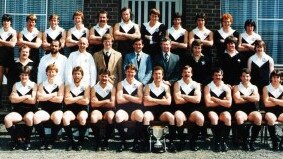
North Ballarat’s John Orr will always rate the 1983 success as the best premiership win out of the many he celebrated during an illustrious career.
Orr is a Roosters legend who was part of the BFL dominance from 1982 until 1996 in the BFL.
The 1983 triumph was one of nine in senior football for Orr.
But he rates this one as the best.
“The first one always sticks in your mind more than anything else,” Orr said.
“The last one in 1996 (was also special) when we had a lot of our players from the firsts playing in the VFL.
“We had a lot of our seconds players play in the seniors and manage to get over the line.
“So the first and the last for different reasons.”
Playing predominantly half forward, Orr admits he was just part of a talented team who knew how to win premierships with their fitness, experience and class.
“I waltzed into a team of very talented senior payers, which made my job easier,” he said.
“And I think our fitness had a bit to do with it. Dylan “Dizzy” Leach was our coach and he was a fitness nut, he had us in very good nick.
“The cream just rose to the top a bit, as it does. Our better players came to the fore.”
After a tight first half, the Roosters kicked away to secure their seventh senior premiership.
“Halfway through the last quarter you start to realise you were going to be home,” Orr said.
“You started to take it all in, looking around the crowd, it was pretty big back then and admiring the supporters enjoying themselves.”
Orr said the Roosters juniors and good administration helped the team to an era of dominance.
And being a North Ballarat player for life, it was a special period for Orr.
“I was at the club from 12 right until the end of my senior career,” he said.
“I’m a staunch Northie.
“It’s going to be great to catch up with some teammates I haven’t caught up with for a long time.”
2013 – North Ballarat 14. 9 (93) defeated Sunbury 10. 12 (72)
The 2013 premiership had a very different feeling to those of previous years.
It was for all the blood, sweat and tears that had gone into rebuilding the Roosters into a Ballarat league powerhouse.
It marked the first premiership since the club returned to its local competition after moving to the VFL in 1996.
There were plenty of ups and downs between those 1996 and 2013 flags — three VFL premierships, a return to country footy action in the Bendigo league in 2006 and a transfer back to Ballarat in 2008.
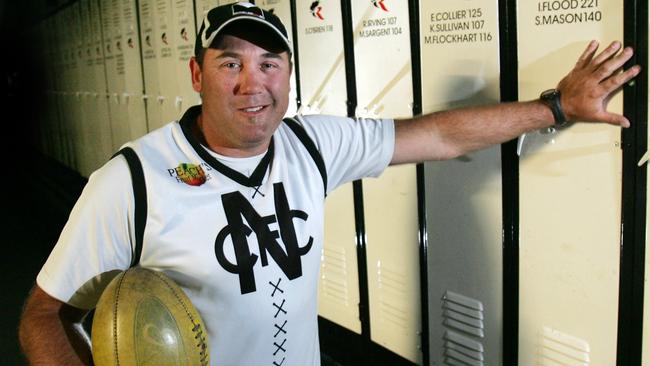
By the time Rob Waters took over as coach in 2010, the club was suffering huge losses but he knew with talented juniors it could turn it around.
“It was a really good era (2013 and 2014),” he said.
“They went into the Bendigo league and were being beaten by 100 points every week.
“Then we went back to the Ballarat league and played all 17-year-old kids and got smashed from pillar to post.
“(When I came) we went from 10th, to prelim, to fourth, to the premiership.”
Slowly but surely the players built the bodies needed for senior footy and the team and committee trusted their juniors to rebuild the club.
Waters also had one other factor up his sleeve.
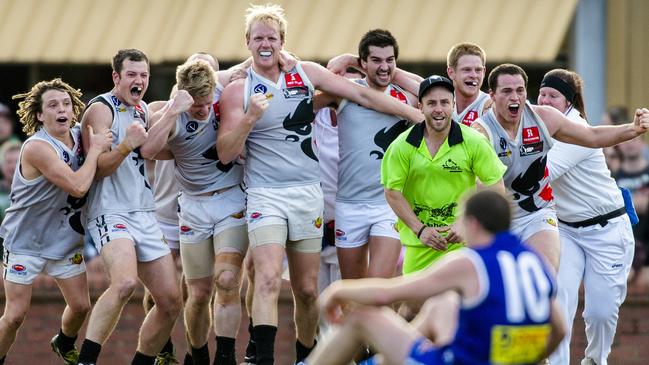
“We played on one of the biggest grounds in the comp (Mars Stadium) and we just went let’s get fitter and fitter and they can chase us all day,” he recalled
“We got some wins and it just built belief.
“Our captain Jason McNamara was a fitness fanatic.
“He won two league medals and set the standard for the boys.”
When the club made the finals in 2013 it lost two key players on the run to the grand final.
“We’d been pretty good all year but got thumped in the first final,” Waters said.
“We lost our premier AFL player, Tristan Cartledge, he broke his hand so he missed the finals.
“We also lost Derrick Micallef, he broke a disc in his back and missed (too).”
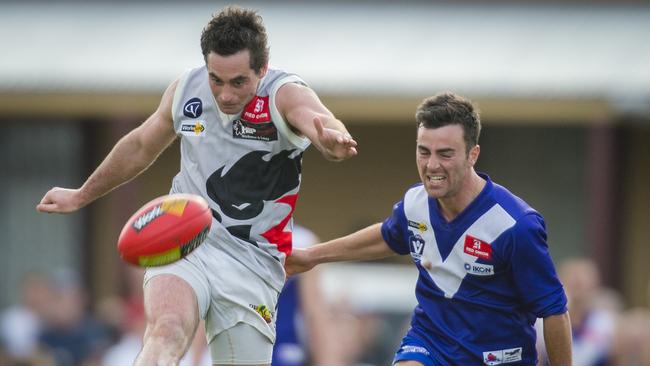
But it didn’t deter the Roosters against Sunbury in the decider.
“I think we came out and kicked the first five goals of the game, then they kicked the next five and then they kicked the next four goals,” Waters said.
“I was like geez what game is this, but we levelled up at the end of the third quarter.
“We went into the last quarter knowing we could out run them and spread and we won by 21 points in the end.
“They might have got 22 or 25 points up going into the third quarter but we knew we could over run them late if we stuck to a plan.”
Waters said the win was special for those who had stuck through in the rebuild of the team.
“To see their face and reaction that night that’s the part I remember for it.
“They’d been there for a million years and saw it all.”



